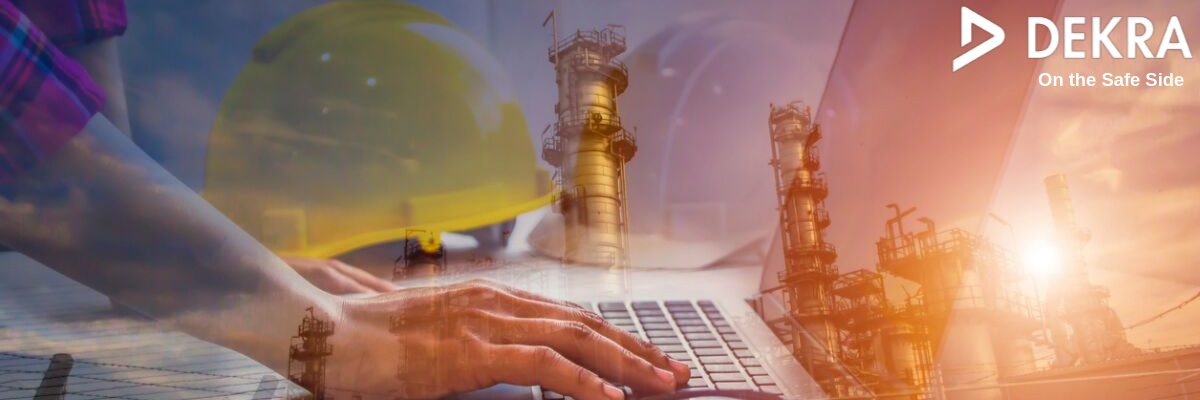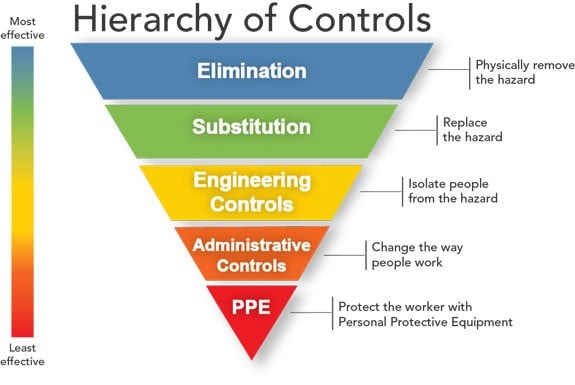Drowsy Driving? An Accident Waiting to Happen
Dec 14, 2020 5:01:28 PM / by DEKRA posted in Serious Injury and Fatality, safety, organizational safety, DEKRA, workplace injuries, Crisis, Workplace safety, Driver Safety, Road Safety
Contain Your Risk! Safety Reminders for Unloading Shipping Containers
Dec 14, 2020 9:32:57 AM / by DEKRA posted in Serious Injury and Fatality, safety, organizational safety, DEKRA, workplace injuries, Crisis, Workplace safety
Unloading shipping containers isn’t quite as easy as unloading groceries from your car. Workers must be aware of the many safety hazards that await them if done haphazardly. What are these hazards and what can an organization do to mitigate the risk of injury or worse?
Workers involved in the loading and unloading of containers should be appropriately trained in how to avoid risks such as:
Rewarding Workers for Safety – the Right Way
Nov 17, 2020 8:52:11 AM / by DEKRA OSR Communications posted in Serious Injury and Fatality, safety, organizational safety, DEKRA, workplace injuries, Workplace safety
Have you ever noticed a sign posted in a workplace stating, “this department has gone 365 days without an on-the-job injury” Would you assume that this is a really safe company? Or do you think there’s a catch behind the claim? Are they safe because they are doing the right things to prevent injury or are they lucky?
Understand Your Exposure: Classifying Serious Injury and Fatality Potential in the Utility Industry
Nov 3, 2020 9:27:04 AM / by Kathy Culig, PhD, Principal Consultant & James Grant, VP- Utilities Leader posted in Serious Injury and Fatality, safety, organizational safety, DEKRA, workplace injuries, Crisis, Utilities, Workplace safety
Imagine that a team of utility workers is using a personnel lift to replace a large, heavy transformer. While taking down the old transformer, a rusted fastener breaks and the transformer falls, striking the ground. The good news is that since the team recognized the risk of falling objects, they set up a huge safety zone on the ground to keep people away from the work area. They also wore their personal protective equipment (PPE) and tied themselves off to prevent falling. Because of the preventive measures that the team took, no one is hurt.
More Than Masks: Using the Hierarchy of Controls to Help Prevent Spread of COVID-19
Apr 17, 2020 1:19:49 PM / by DEKRA OSR Communications posted in Serious Injury and Fatality, safety, organizational safety, DEKRA, workplace injuries, Opiod Crisis, COVID-19, Crisis
Six Tips to Enhance Workplace Safety During the COVID-19 Crisis
Mar 20, 2020 7:00:00 AM / by DEKRA OSR Communications posted in Serious Injury and Fatality, safety, organizational safety, DEKRA, workplace injuries, Opiod Crisis
In the rapidly changing environment caused by the COVID-19 virus pandemic, leadership needs to access the latest reliable information and communicate with employees about steps being taken to stop the spread of the contagion. The pandemic has changed workplace safety, introducing significant stress and uncertainty. This can result in leaders doing fewer high-quality safety activities, because they are concerned they can’t answer the most pressing questions. Employee stress increases the probability of distraction when situational awareness is most needed.
Use Effective Safety Leadership Practices to Help Prevent Burn Injuries
Feb 14, 2020 8:00:00 AM / by DEKRA OSR Communications posted in Serious Injury and Fatality, safety, organizational safety, DEKRA, workplace injuries, Opiod Crisis
On June 3, 1991, the Colorado Department of Health (CDH) was notified of a work-related burn sustained by a 20-year-old employee of a fast-food restaurant. The employee had been following the restaurant's standard procedure for cleaning exhaust filters located approximately five feet above a deep fryer. She had placed a wooden cover over three of the fryer's four bins, all four of which contained hot grease; no cover was available for the fourth bin. While standing on a chair she had placed on the wooden cover to reach and remove the filters, she fell, sustaining second- and third-degree burns over 10% of her body when she immersed her arm and shoulder in the hot grease contained in the uncovered fourth bin. She was hospitalized for 4 days and later required plastic surgery for scarring.(1)
Not Just Drugs: Taking a Broader View on Workplace Impairment
Jan 31, 2020 7:00:00 AM / by DEKRA OSR Communications posted in Serious Injury and Fatality, safety, organizational safety, DEKRA, workplace injuries, Opiod Crisis
Imagine that you’re a supervisor at a construction site, in a state where marijuana is legal. As you begin the day, you notice that one of your employees, Mike, doesn’t look like himself. His eyes are red, and he’s moving more slowly than usual. You think he might be under the influence of marijuana. Mike operates heavy machinery, and you’re worried about his and others’ safety. To play it safe, you follow company policy, have Mike get a urine test, and send him home until the test comes back three days later.
Only Human: New Neuroscience Uncovers Workplace Hazards
Jan 17, 2020 7:00:00 AM / by DEKRA OSR Communications posted in Making Safe Decisions, safety, DEKRA, Brain-Centric Reliability
Workplace hazards can be obvious as well as hidden, with immediate impact as well as delayed consequences. Workers can slip and fall in an instant or develop lung cancer from asbestos exposure over years. Recent neuroscience research has identified new hazards that come with the limitations of just being human. The way the human brain naturally works doesn’t always mesh well with processes that aren’t designed optimally. Real, identifiable latent conditions, if left uncontrolled, can and do result in injury, illness or organizational accidents.
When Is Taking Initiative Going Too Far?
Dec 20, 2019 9:00:00 AM / by DEKRA OSR Communications posted in Making Safe Decisions, safety, DEKRA, Brain-Centric Reliability
While moving a new car up a ramp onto a payload bed for delivery, something goes wrong. The car starts to roll back down the ramp. Workers nearby run forward and secure it. The program manager presents the workers with awards at the next all-hands meeting for their quick response, preventing the car from possible damage. Does this send the right message? Would they have gotten awards if someone’s hand or foot had been crushed in the process?


